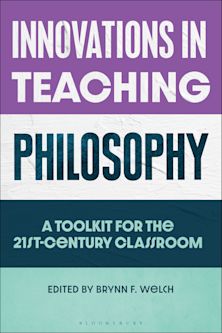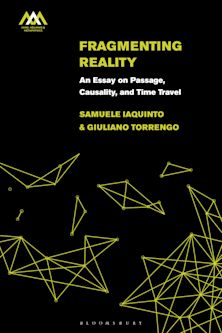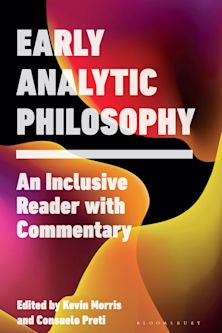- Home
- ACADEMIC
- Philosophy
- Analytic Philosophy
- The Moral Epistemology of Intuitionism
The Moral Epistemology of Intuitionism
Neuroethics and Seeming States
The Moral Epistemology of Intuitionism
Neuroethics and Seeming States
You must sign in to add this item to your wishlist. Please sign in or create an account
Description
Covering moral intuition, self-evidence, non-inferentiality, moral emotion and seeming states, Hossein Dabbagh defends the epistemology of moral intuitionism.
His line of analysis resists the empirical challenges derived from empirical moral psychology and reveals the seeming-based account of moral intuitionism as the most tenable one. The Moral Epistemology of Intuitionism combines epistemological intuitionism with work in neuroethics to develop an account of the role that moral intuition and emotion play in moral judgment. The book culminates in a convincing argument about the value of understanding moral intuitionism in terms of intellectual seeming and perceptual experience.
Table of Contents
Introduction
Part I: Mind
1. Philosophical Intuition's Mental Ontology
2. Moral Intuition's Mental Ontology: Shifting from Philosophical to Moral Intuition
3. The Use of Intuition as Evidence
Part II: Epistemology
4. Shaping Classic Moral Intuitionism: An Examination of H. A. Prichard's and W. D. Ross's Ideas
5. Towards the New Moderate Intuitionism: Recent Revivals of Contemporary Moral Intuitionism
Part III: Neuroethics
6. Scepticism about Moral Intuition: How My Favoured Account of Intuition Rebuts the Neuroethicists' Position
7. Scepticism about Moral Intuitionism: How My Favoured Account of Epistemological Intuitionism Rebuts Sinnott-Armstrong's Position
Afterword
Notes
Bibliography
Index
Product details

| Published | 01 Dec 2022 |
|---|---|
| Format | Ebook (PDF) |
| Edition | 1st |
| Extent | 264 |
| ISBN | 9781350297586 |
| Imprint | Bloomsbury Academic |
| Publisher | Bloomsbury Publishing |
About the contributors
Reviews
-
How does moral cognition work? And do our moral judgments ever amount to genuine knowledge? In this outstanding book, Hossein Dabbagh answers both questions: along the way, the intuitionist moral epistemology he develops shows how to resist empirically motivated moral skepticism and to vindicate intuitions as the foundation of moral knowledge.
Hanno Sauer, Associate Professor of Philosophy, Utrecht University, The Netherlands

ONLINE RESOURCES
Bloomsbury Collections
This book is available on Bloomsbury Collections where your library has access.



































